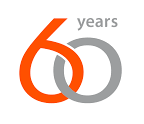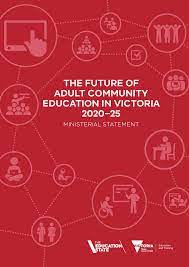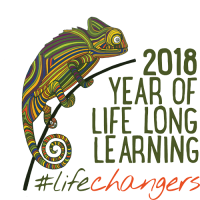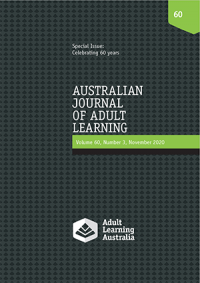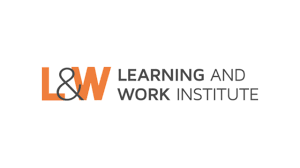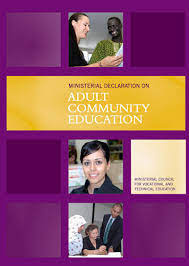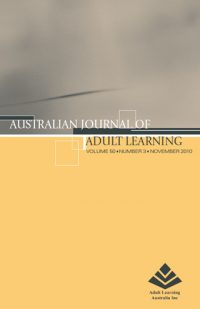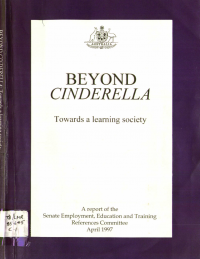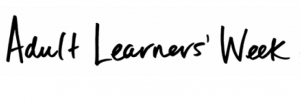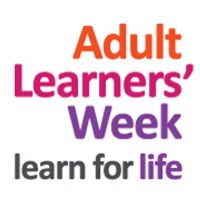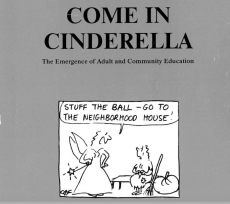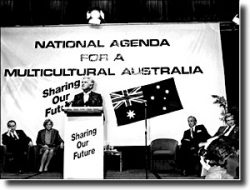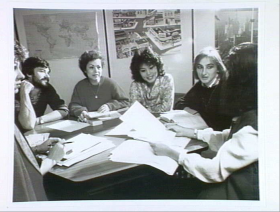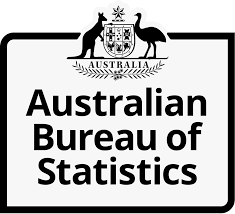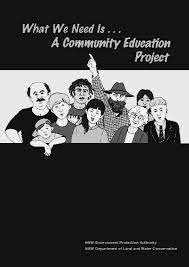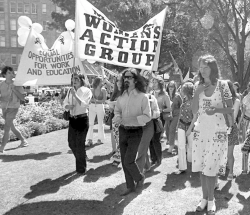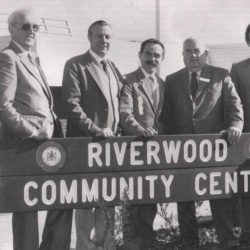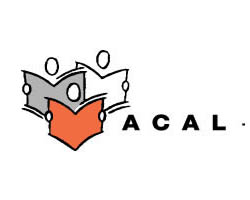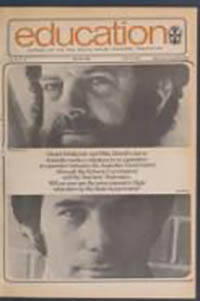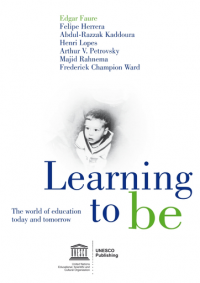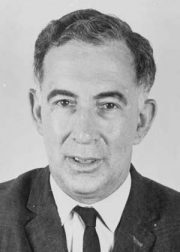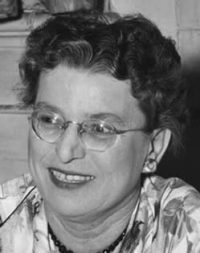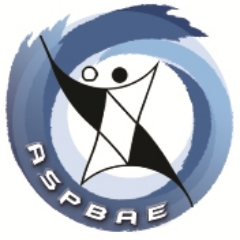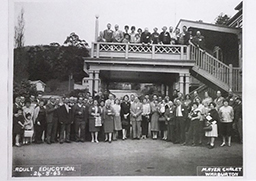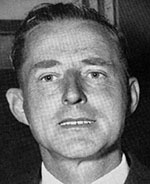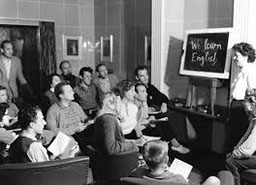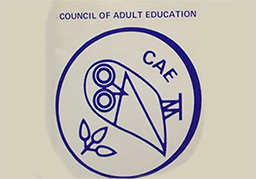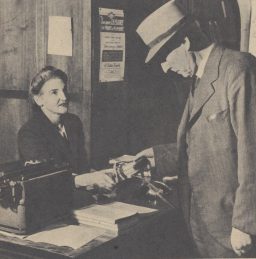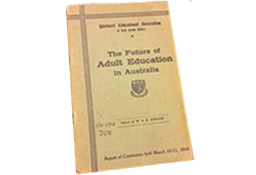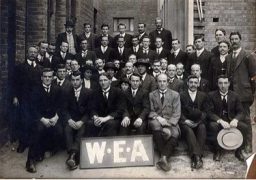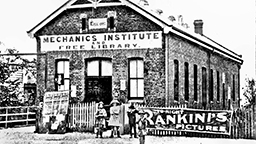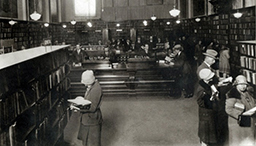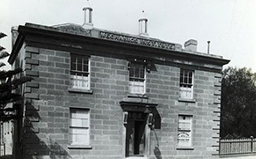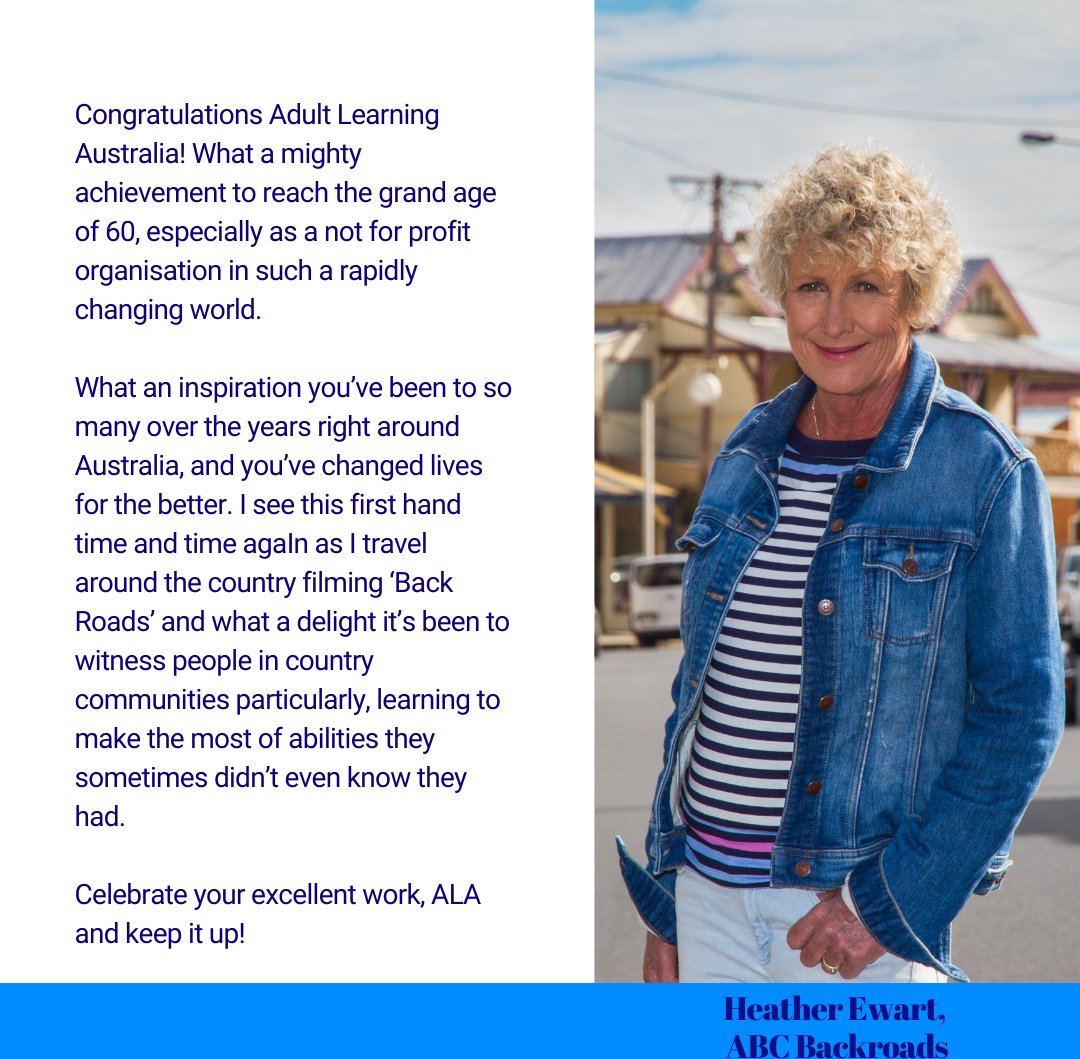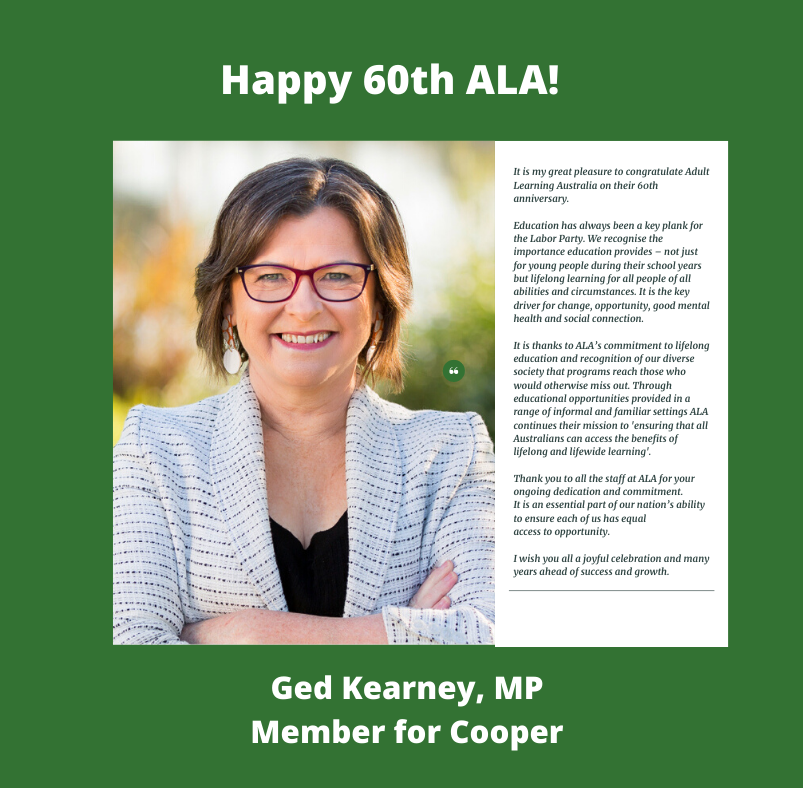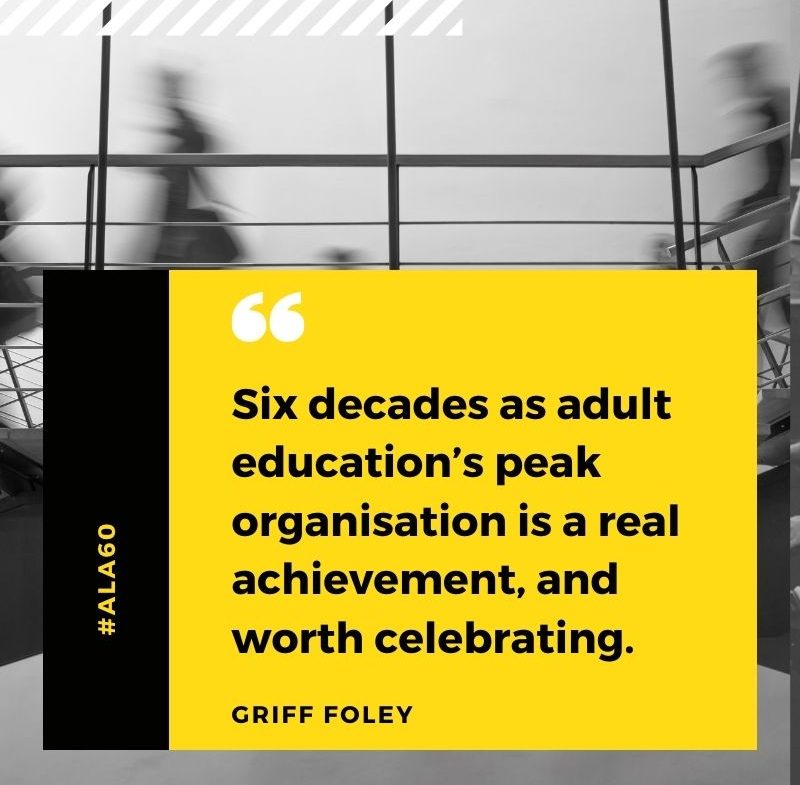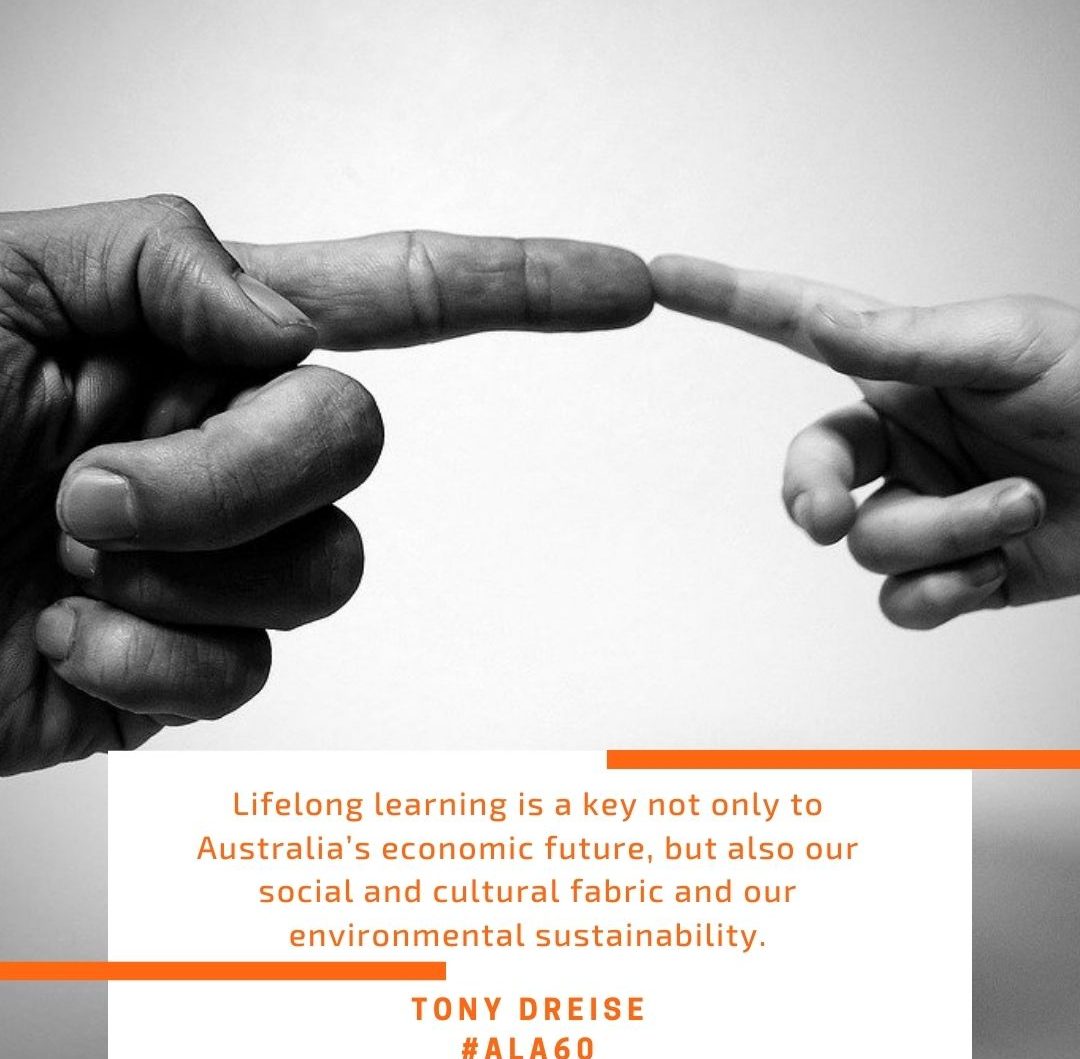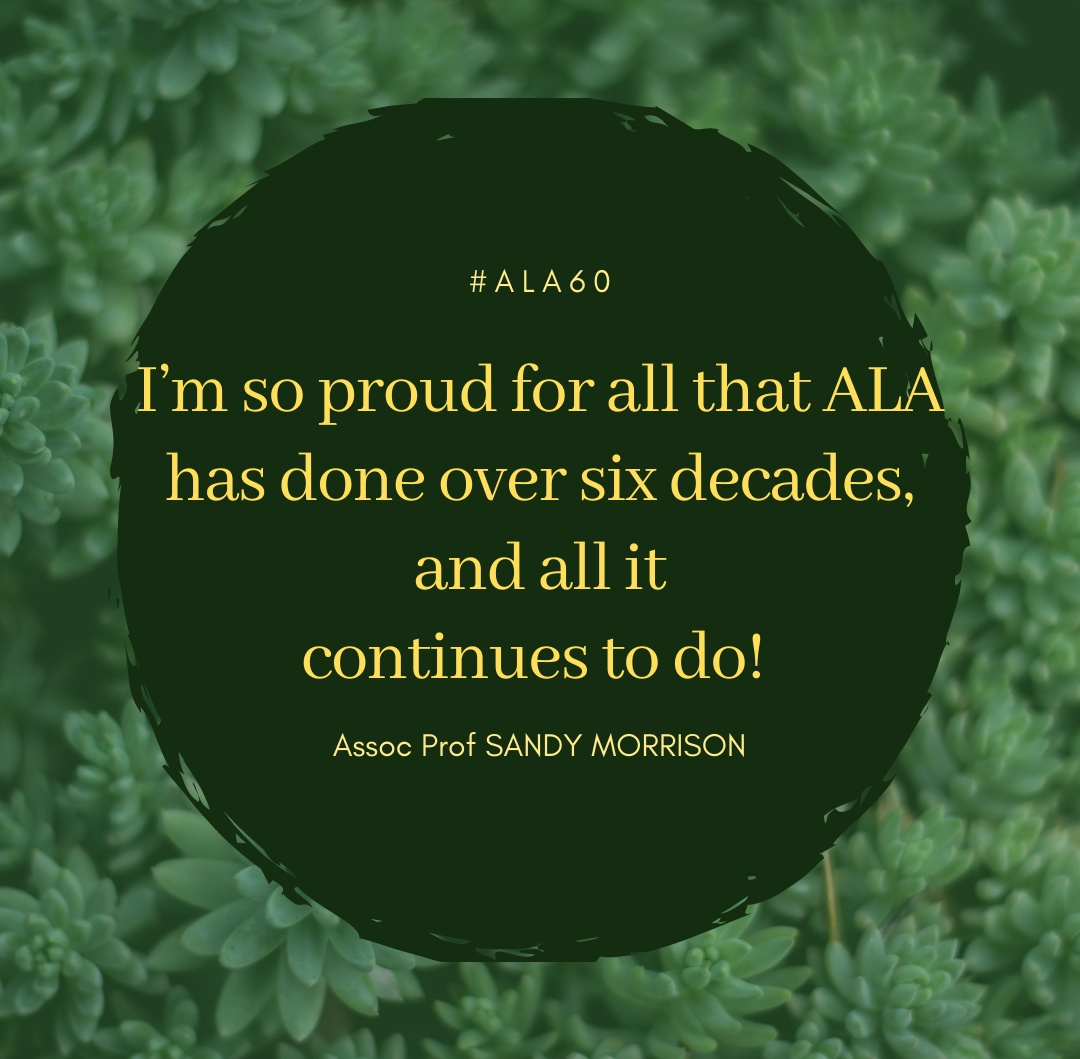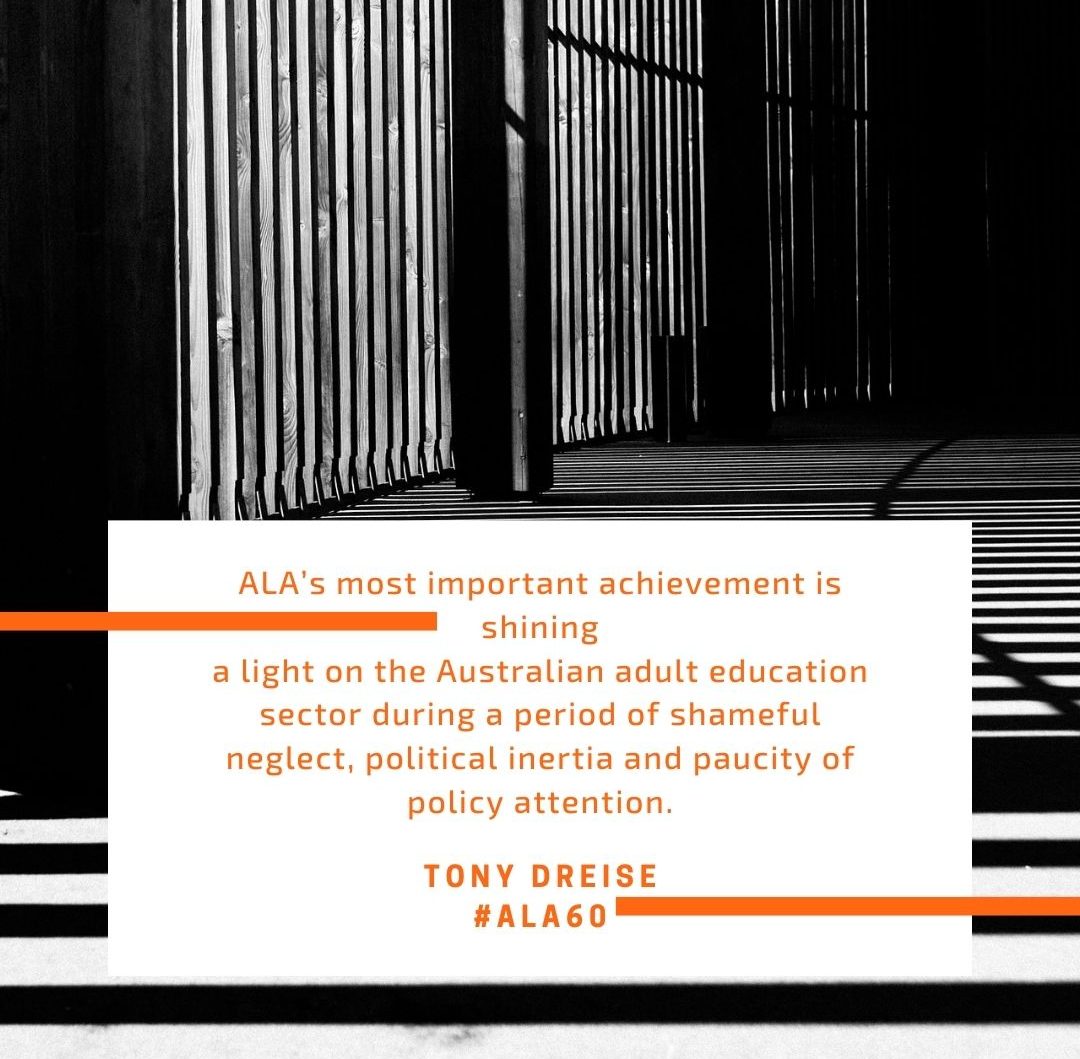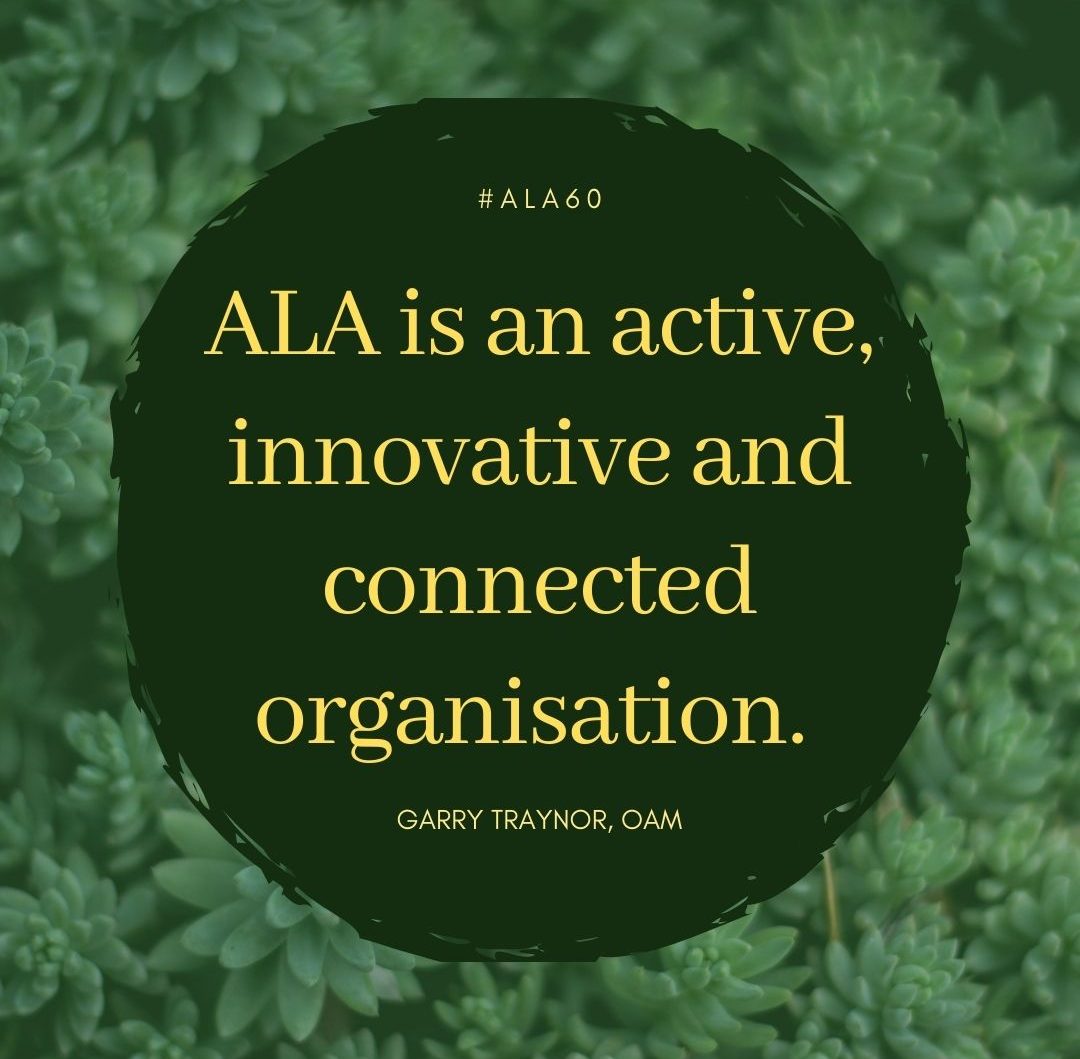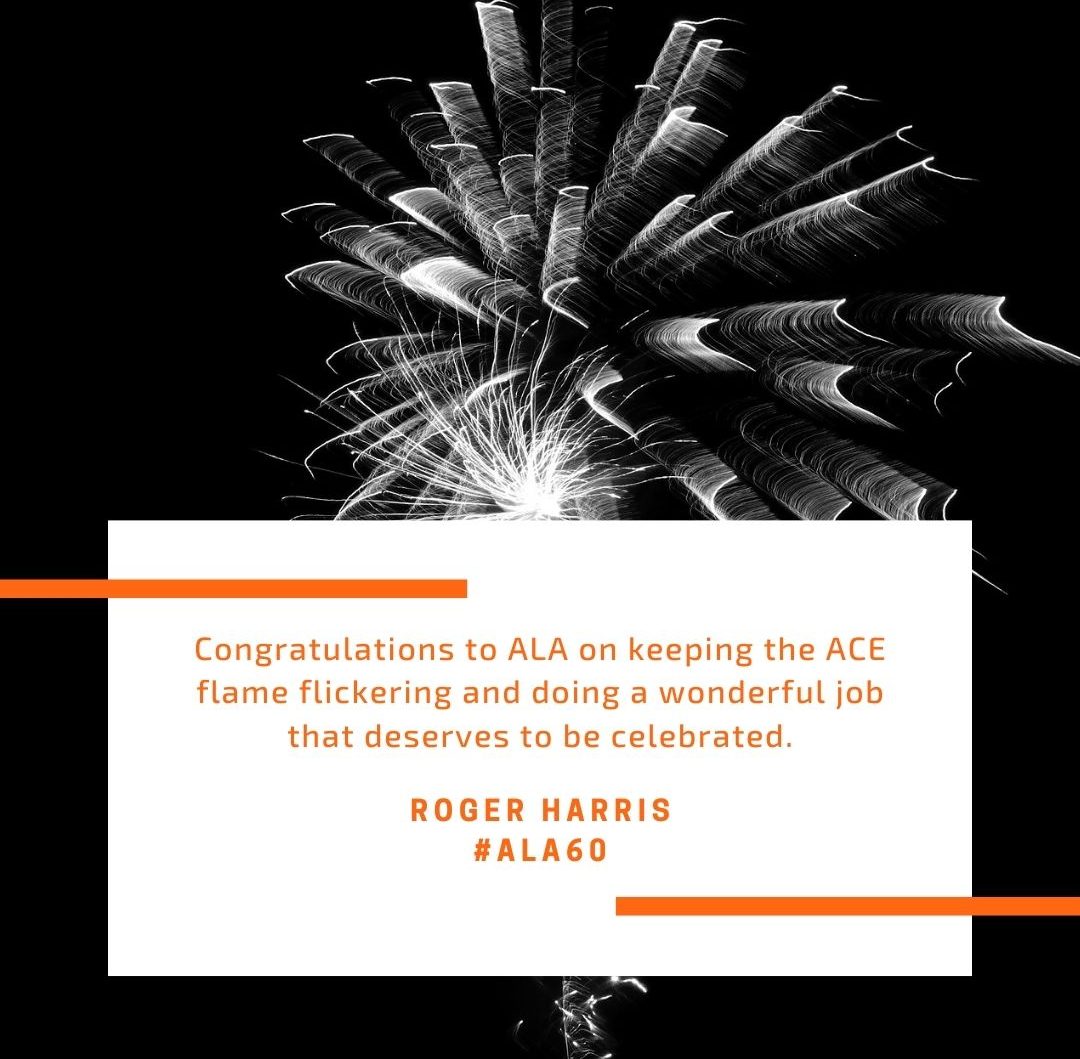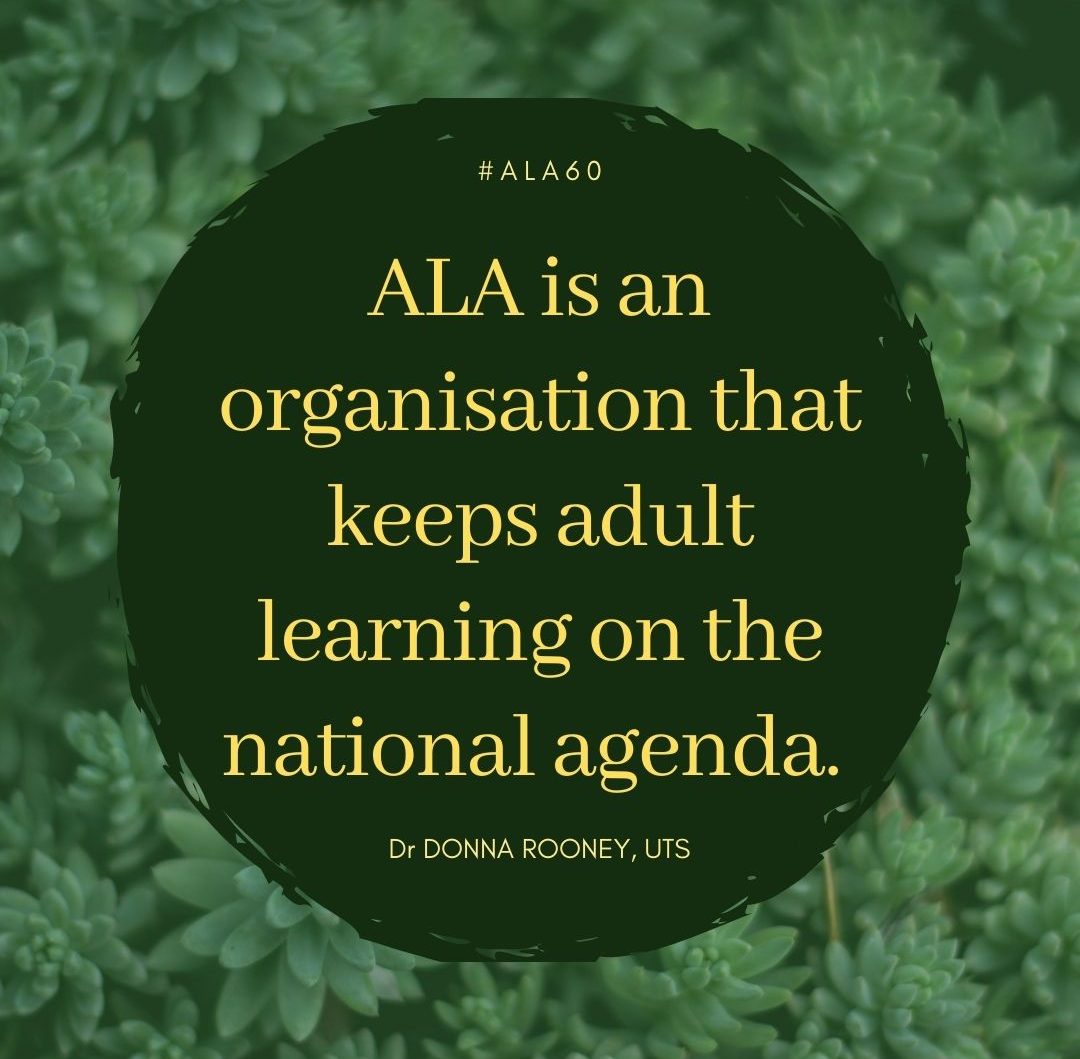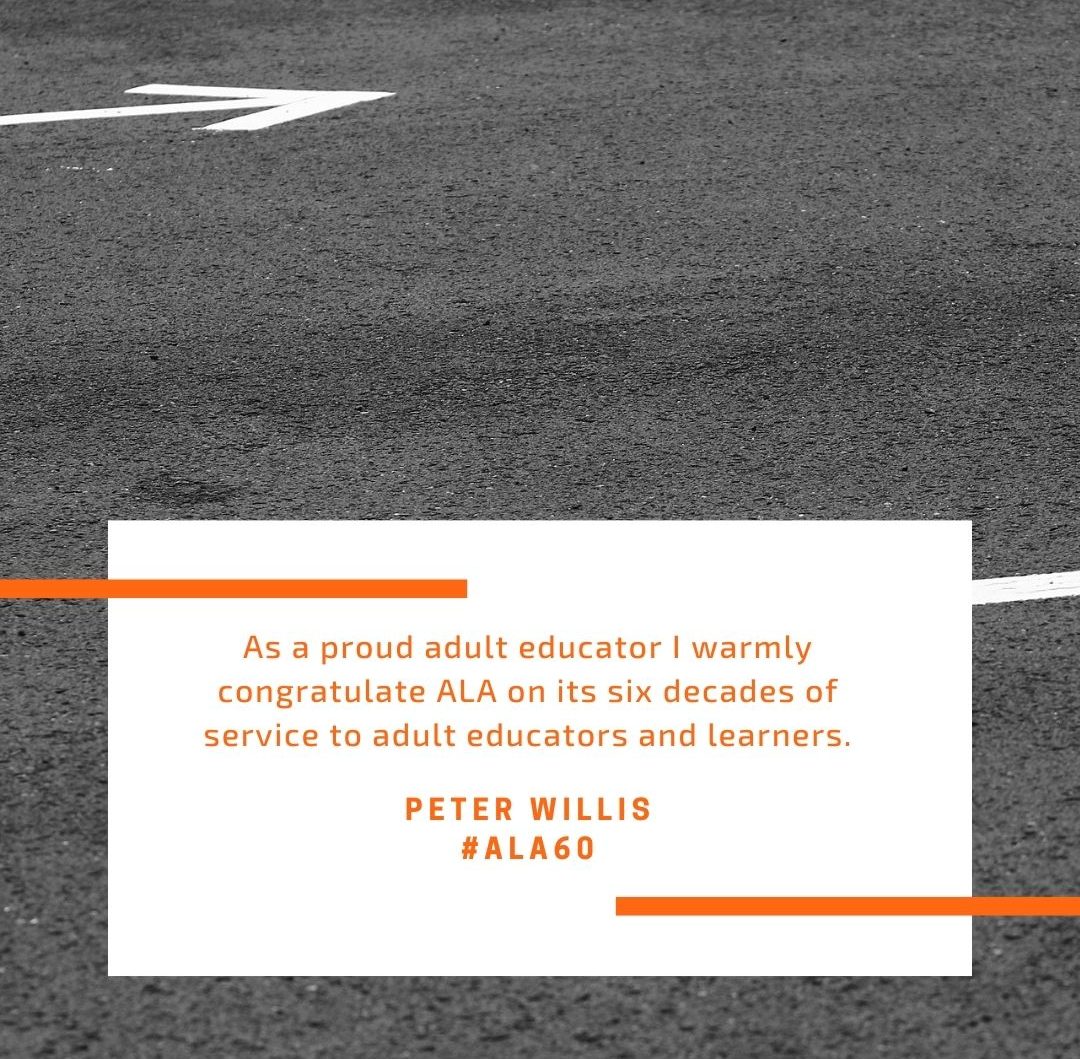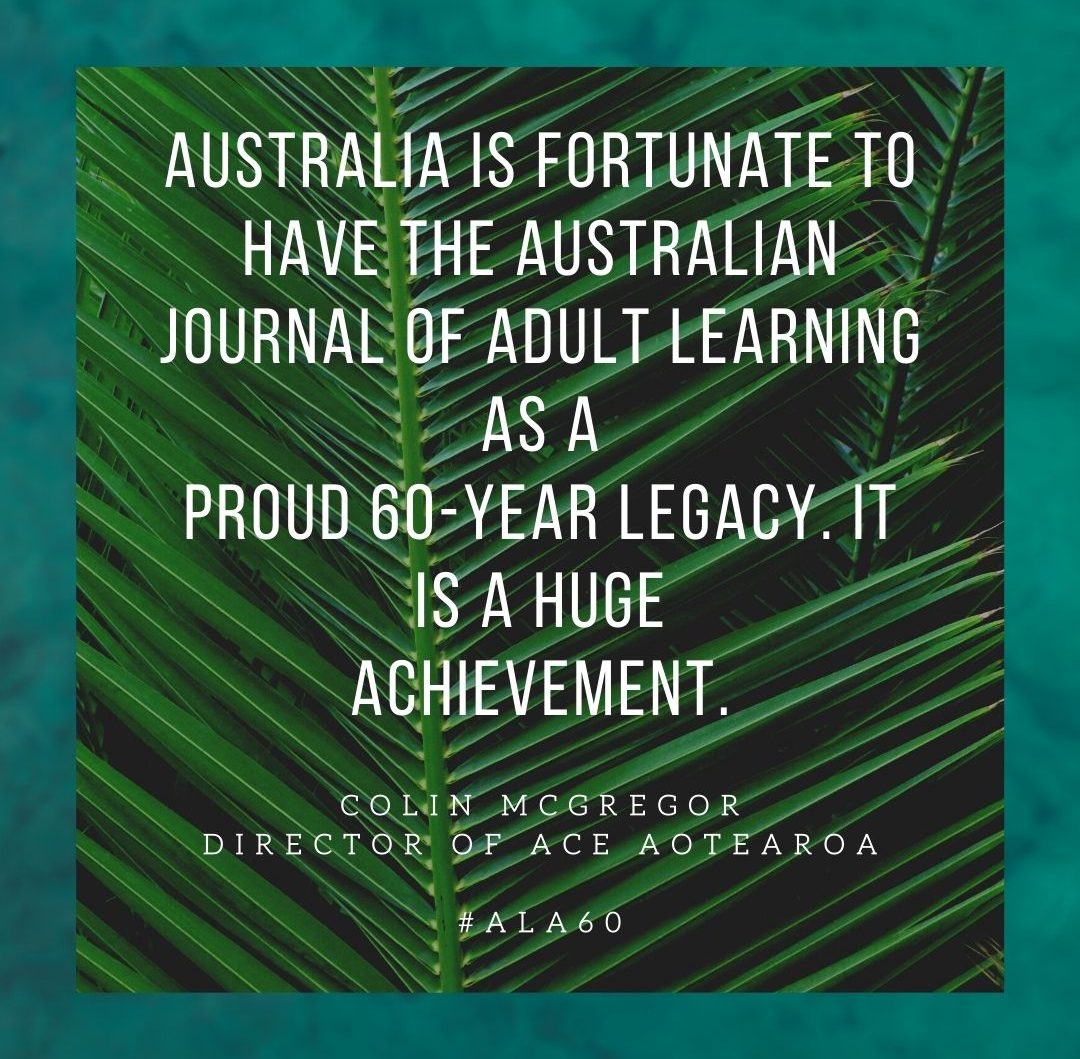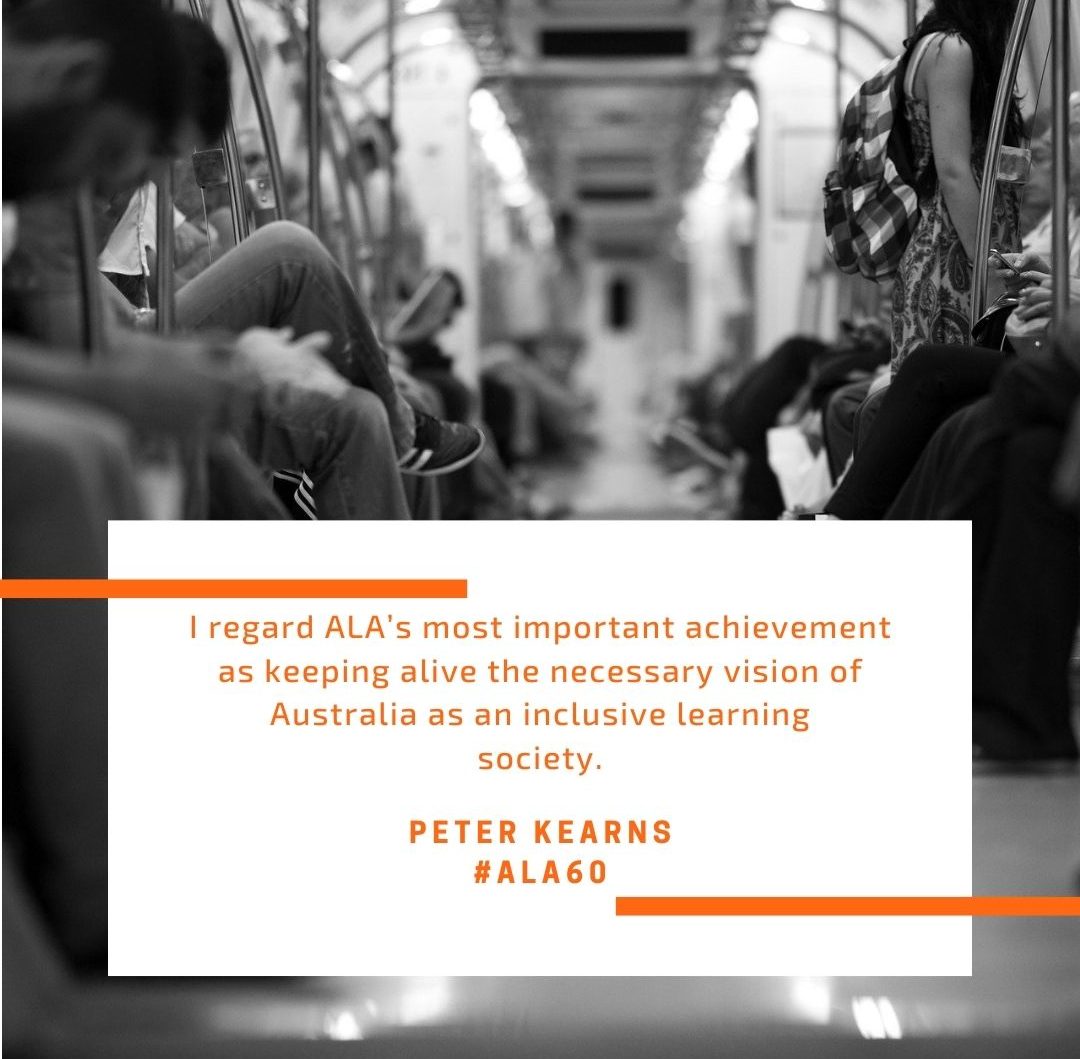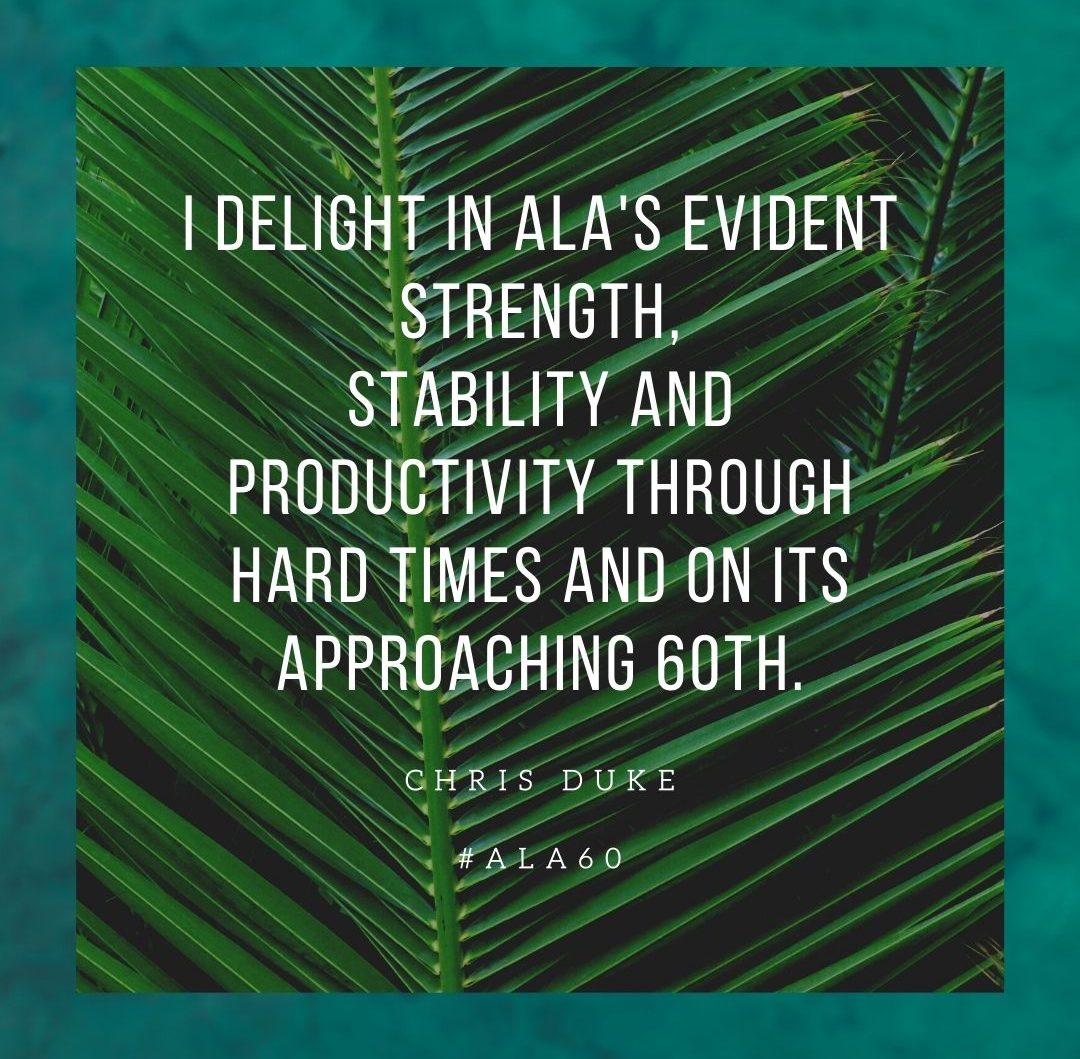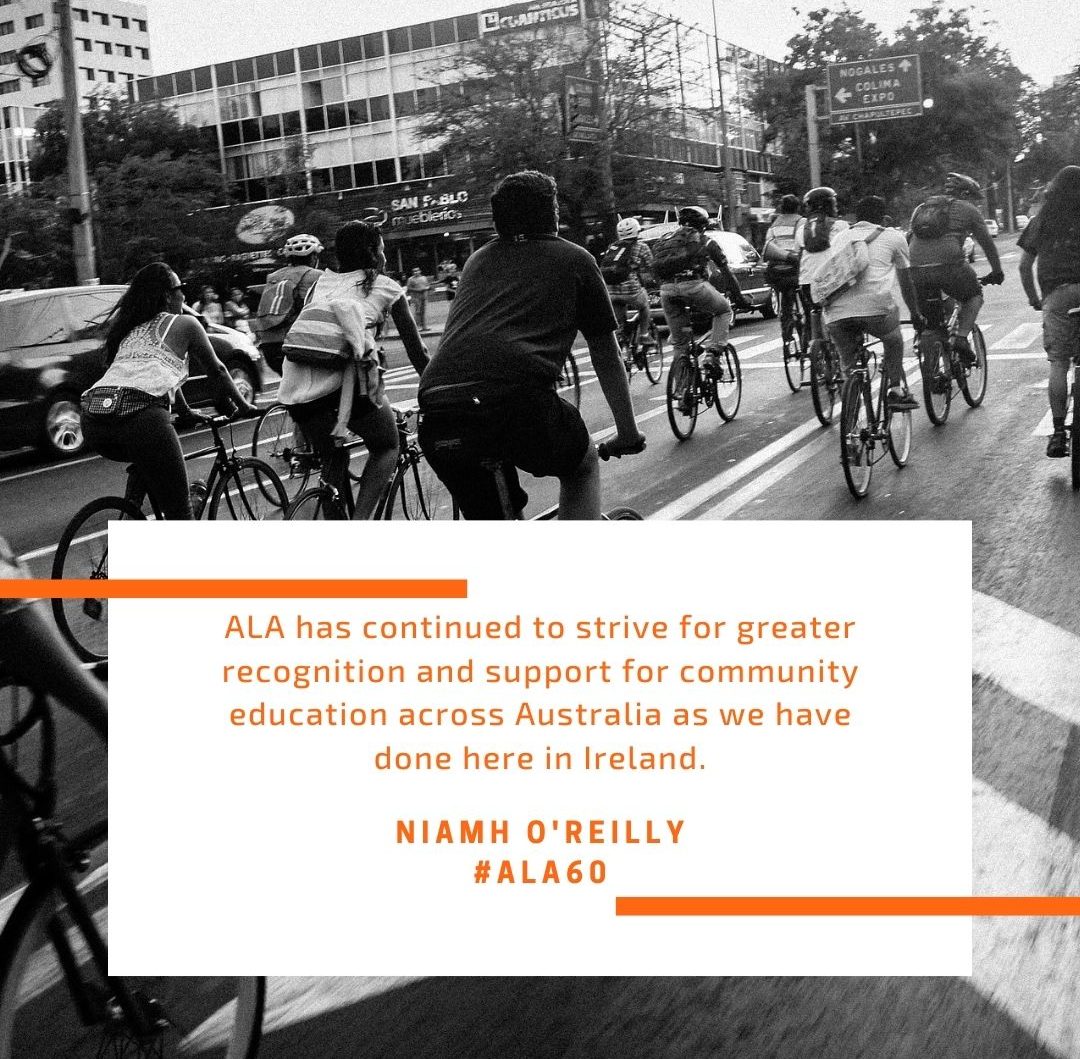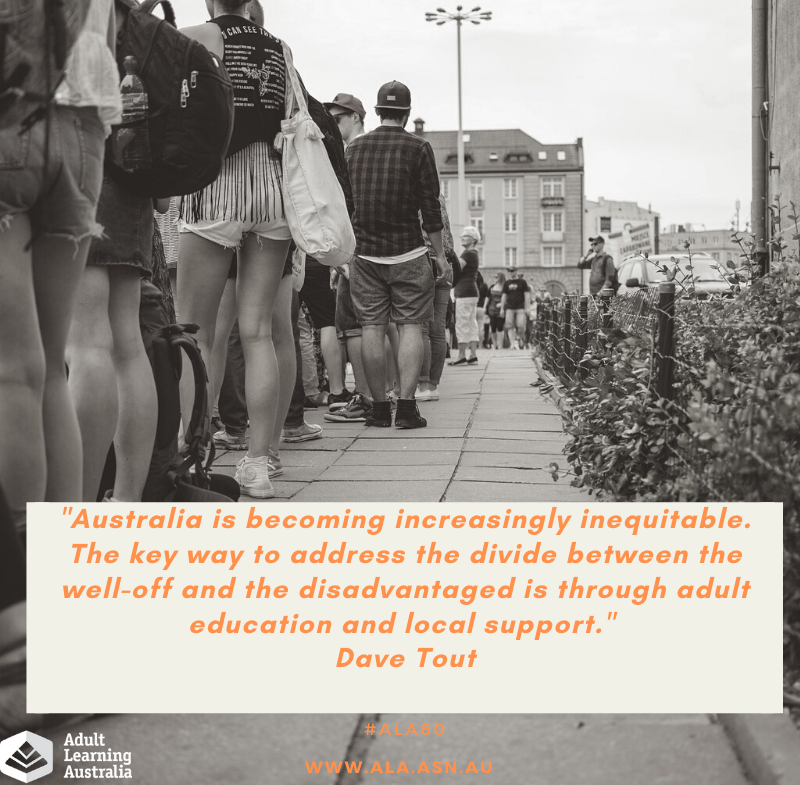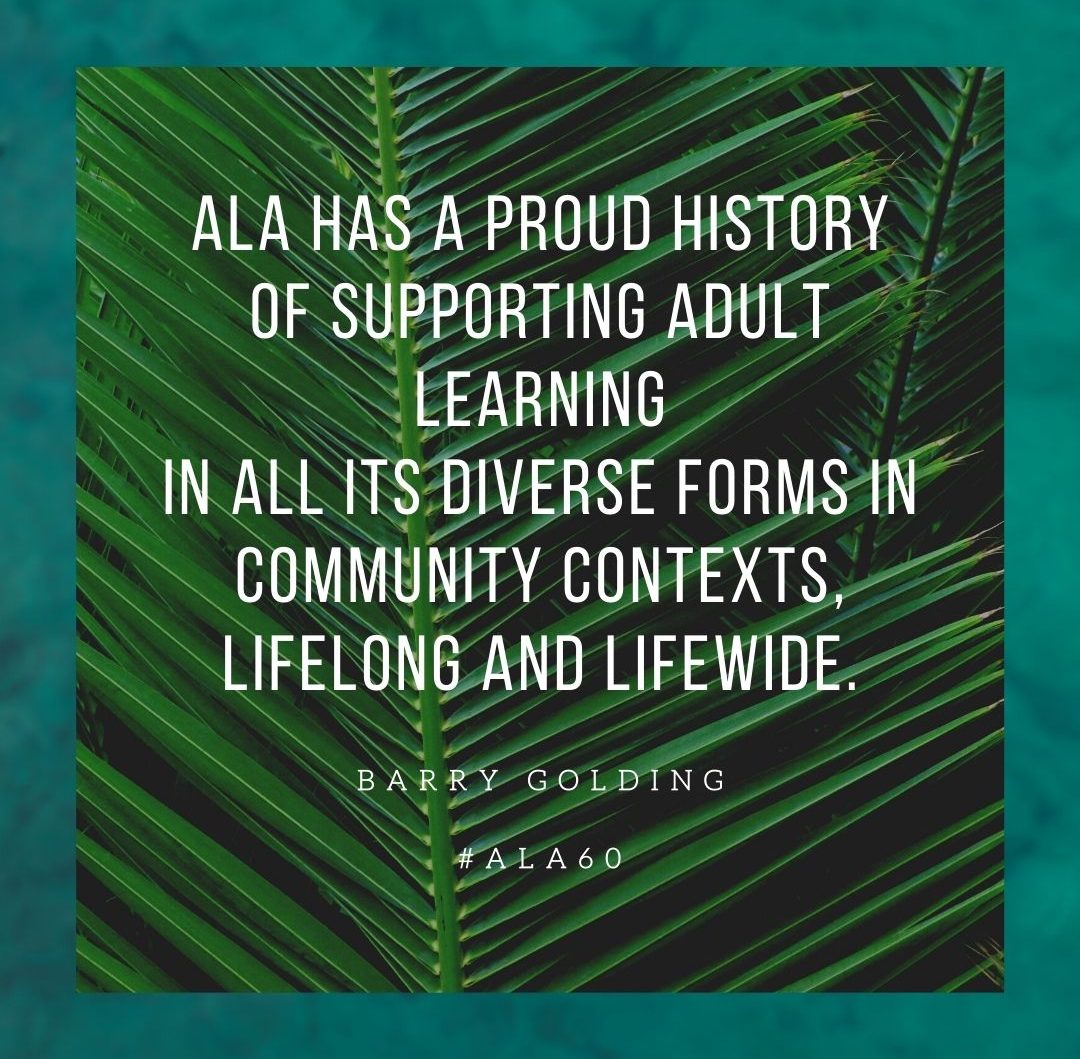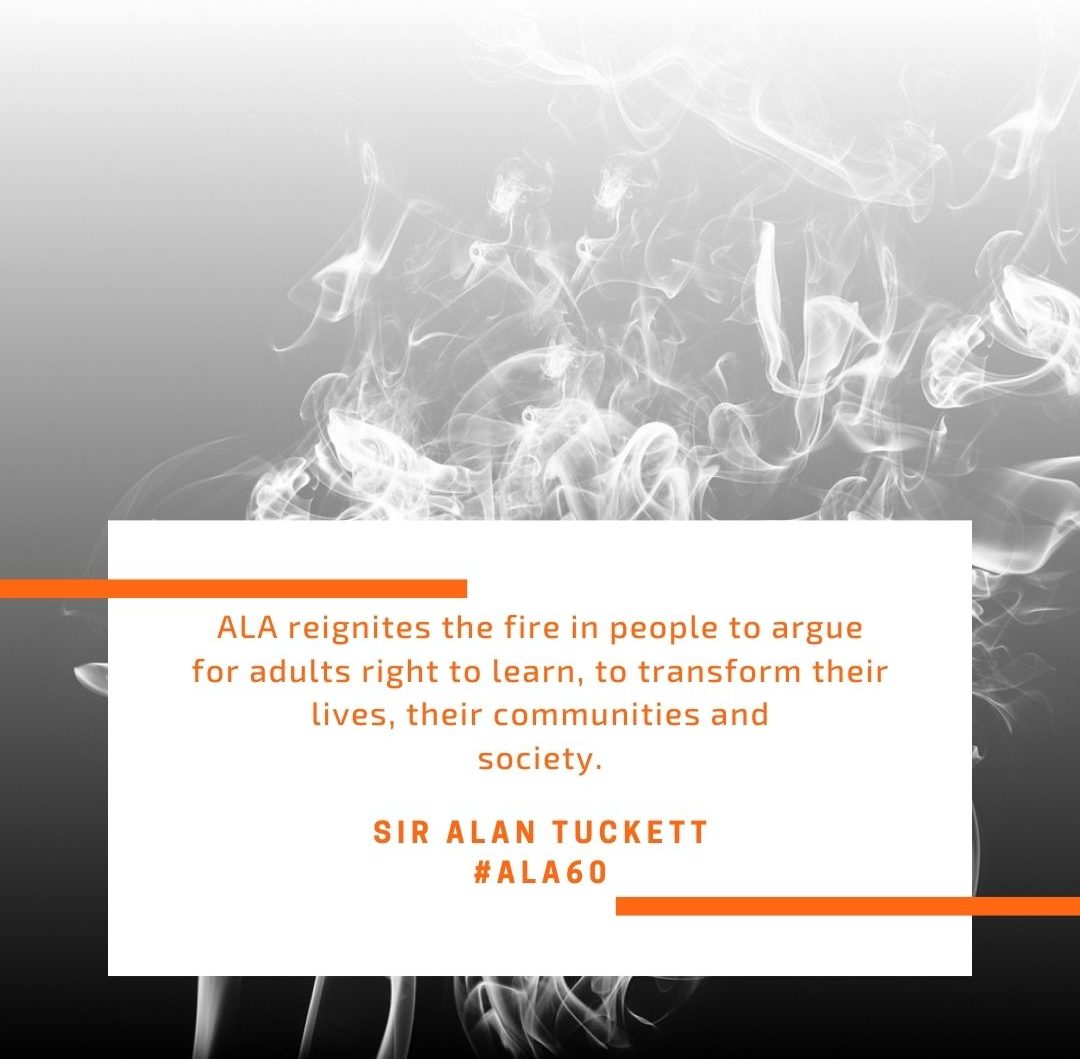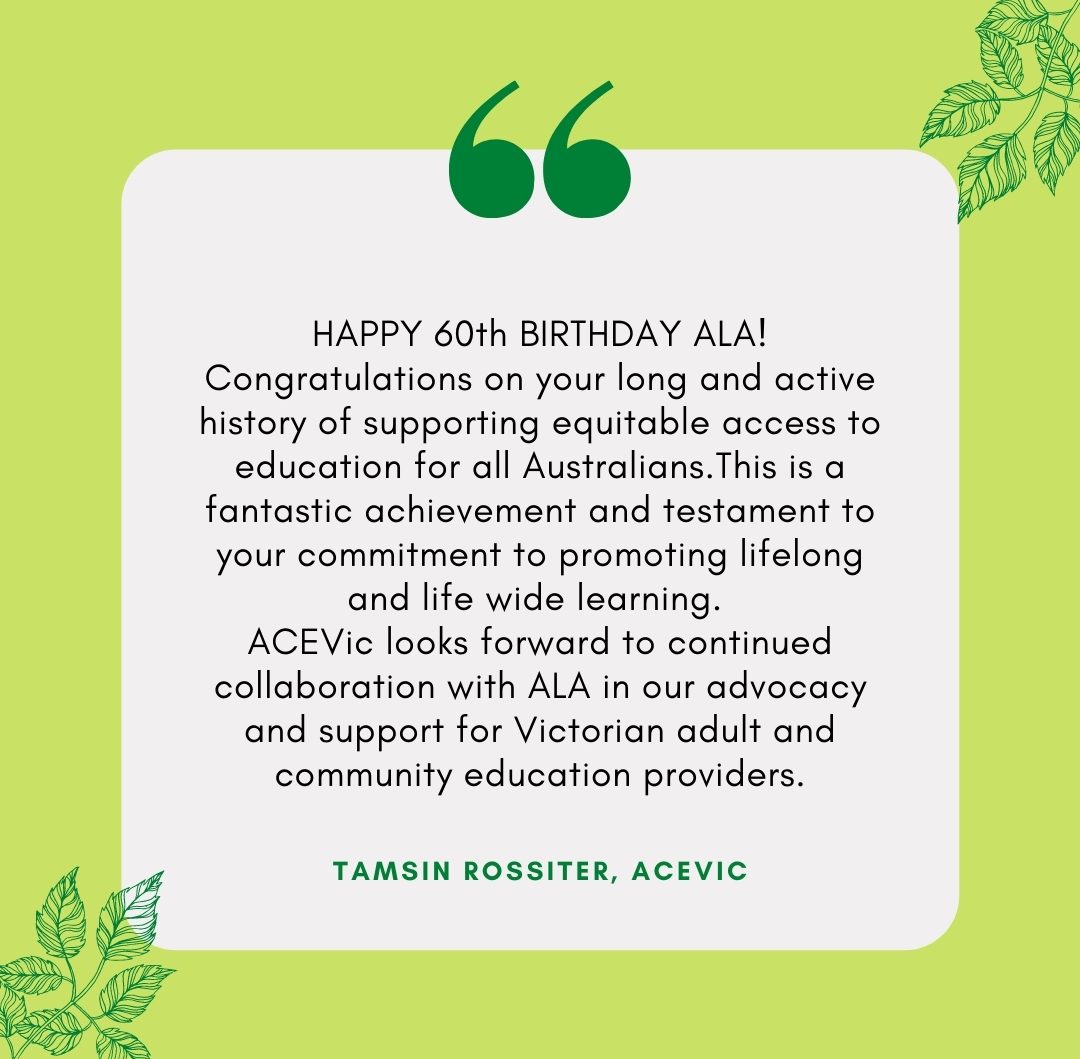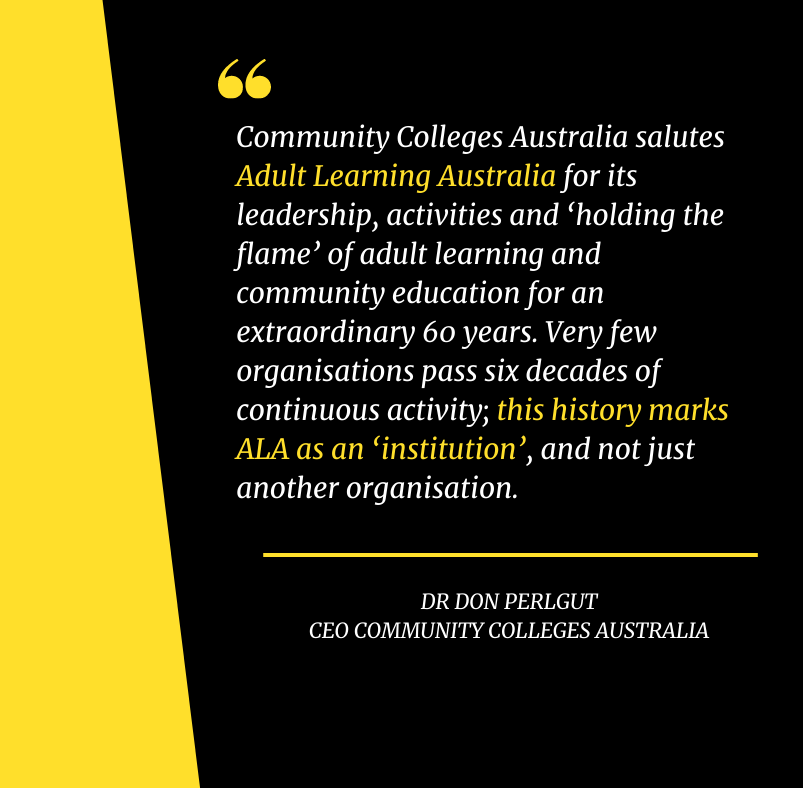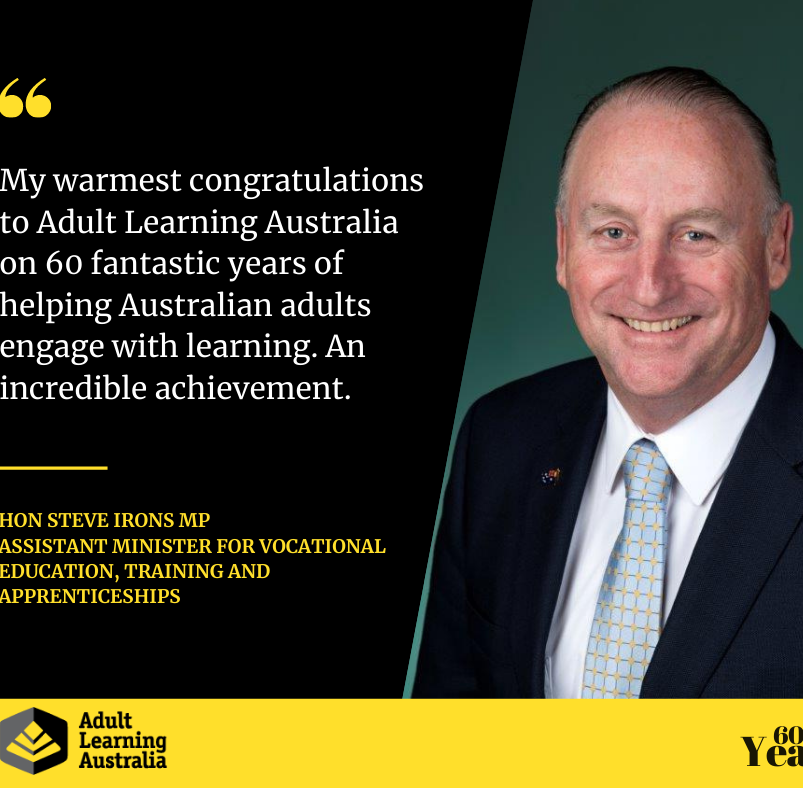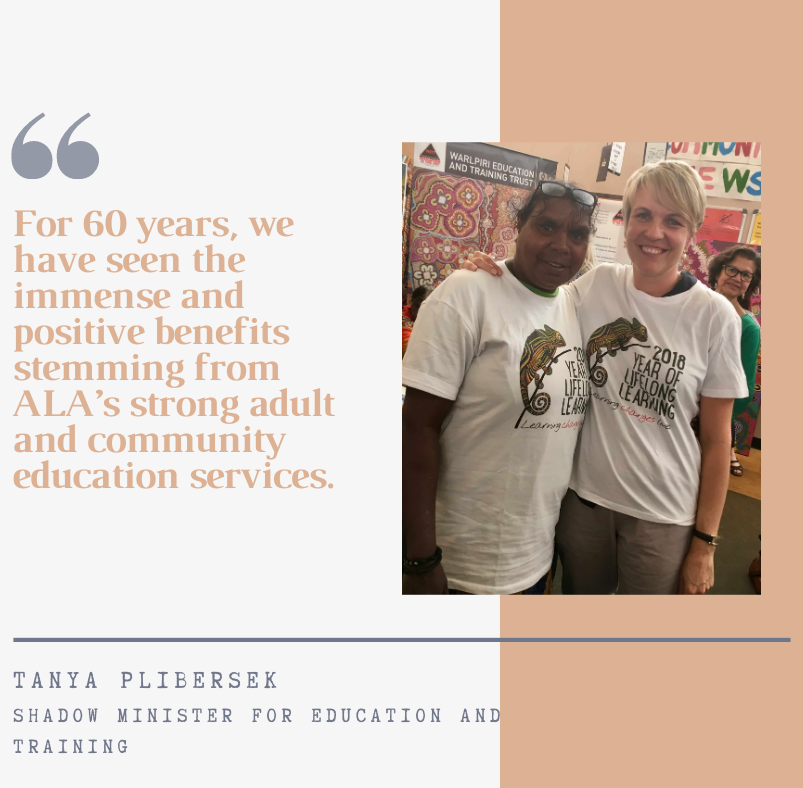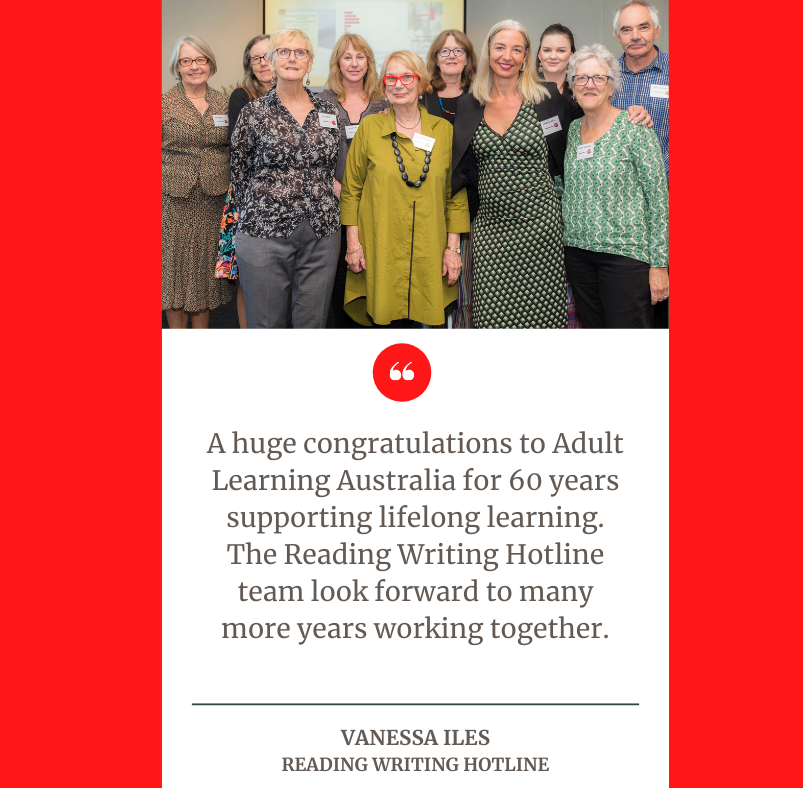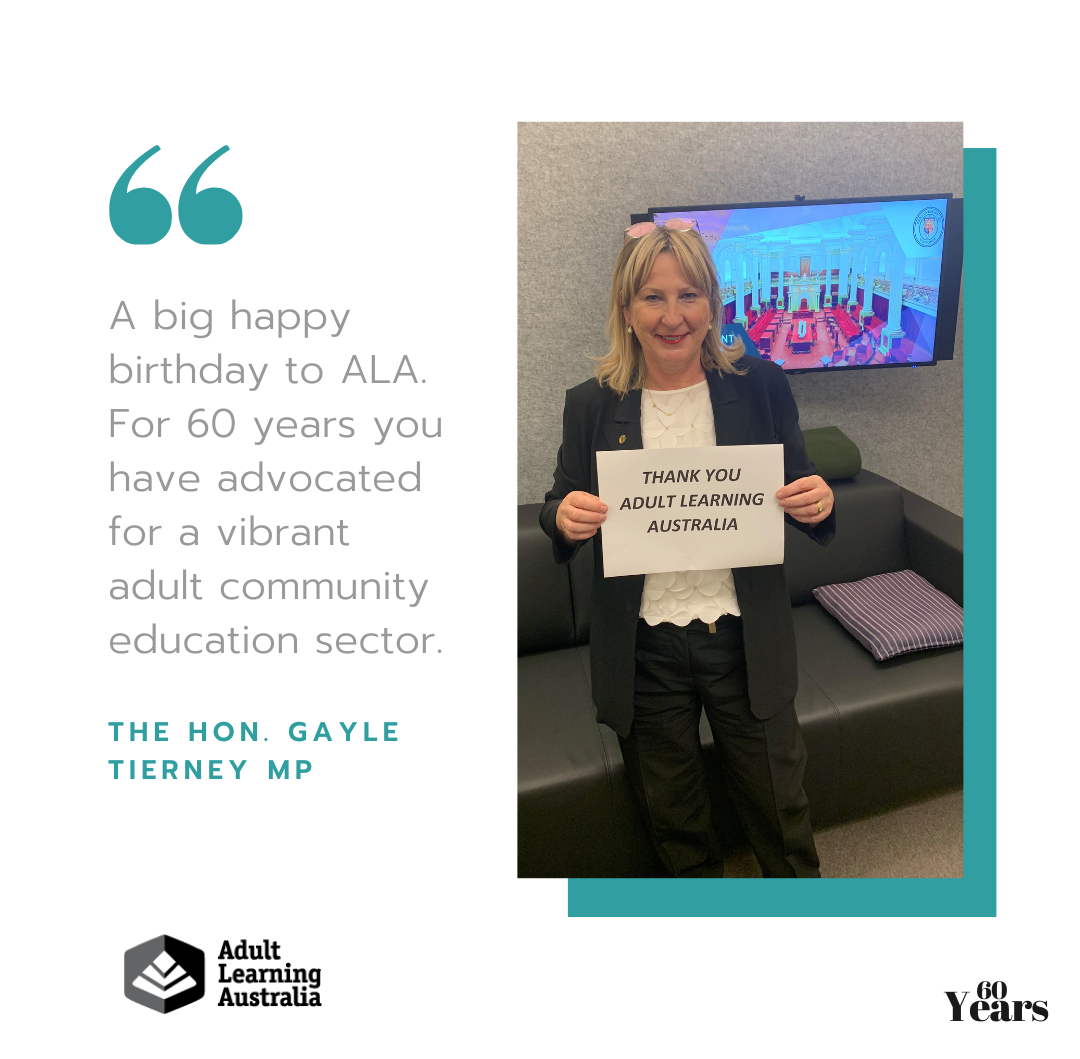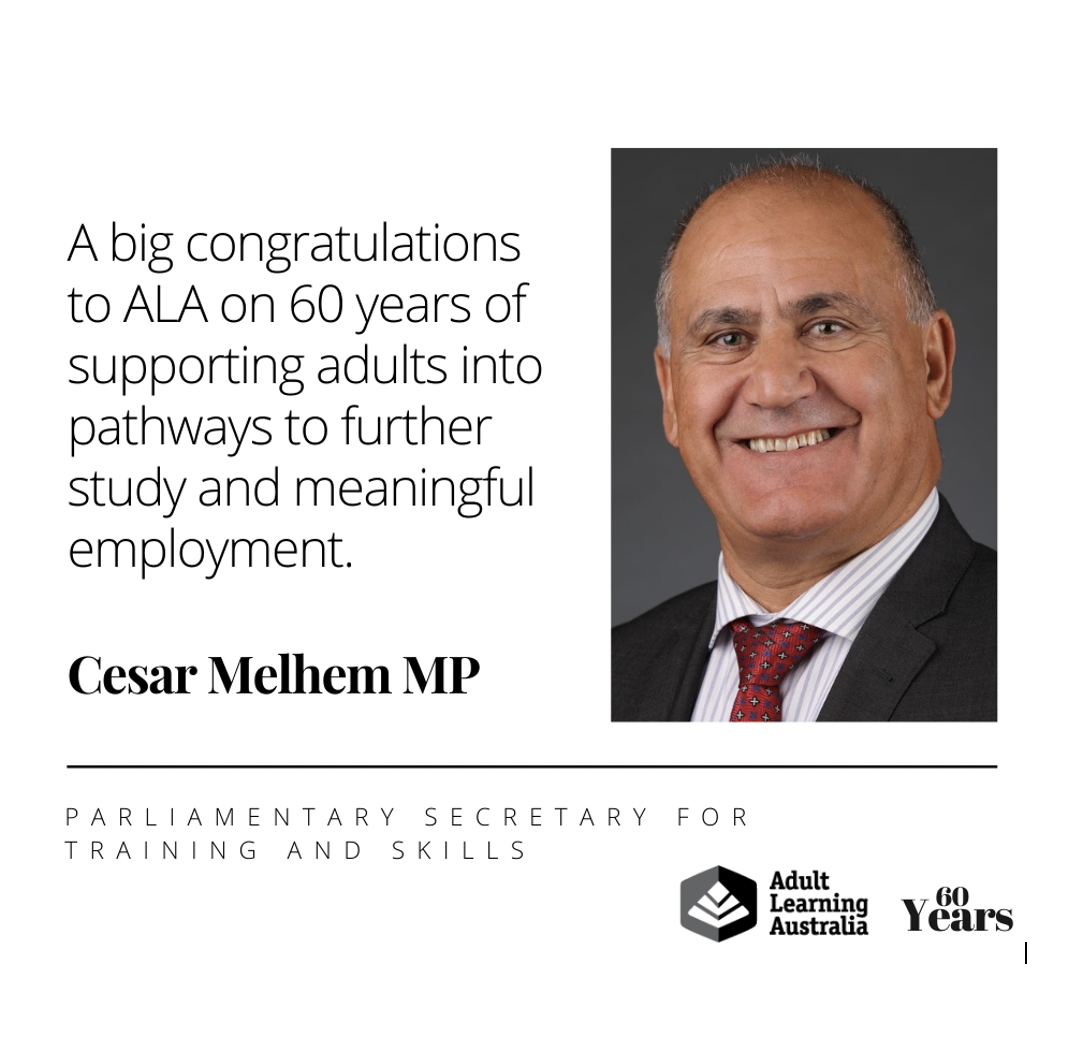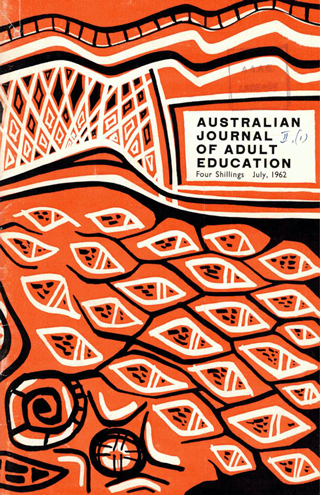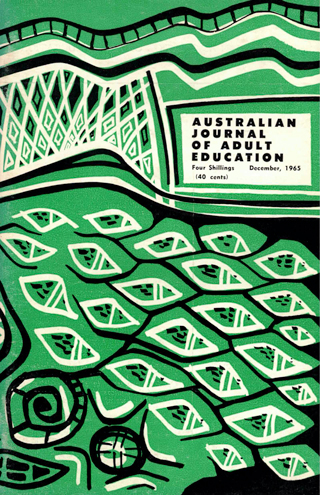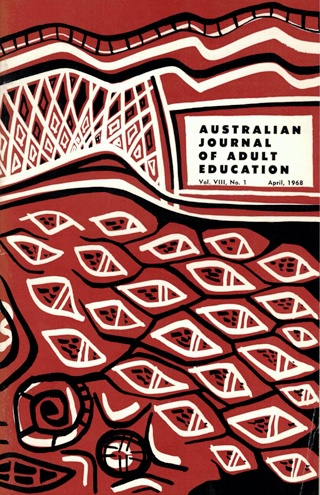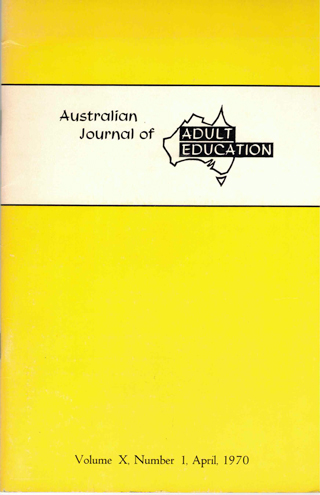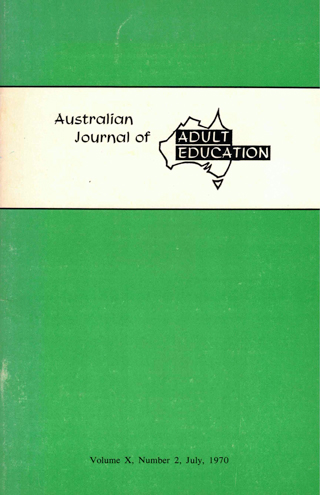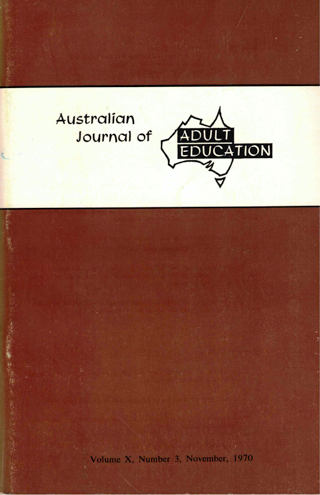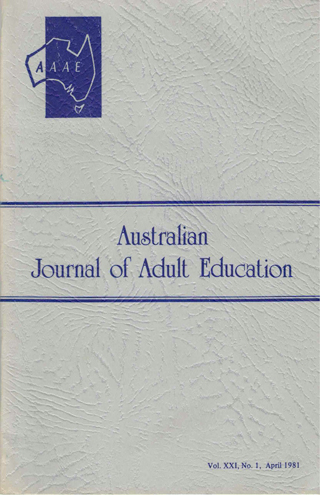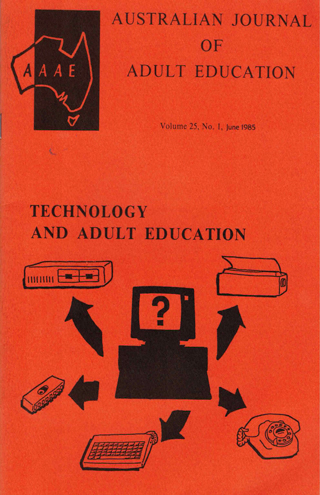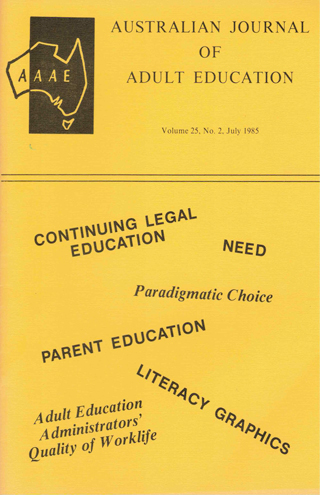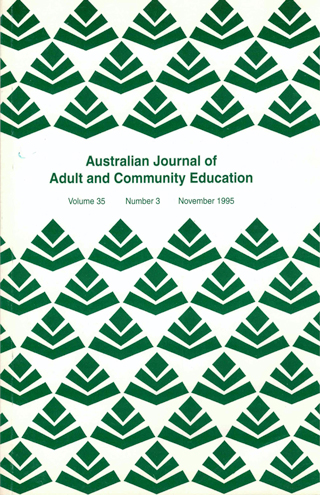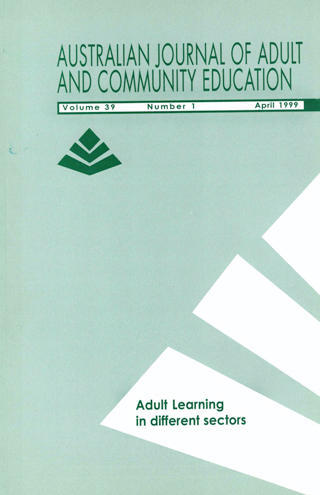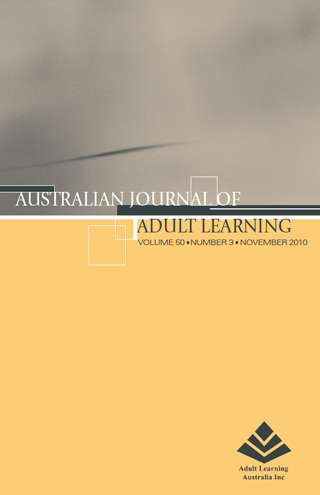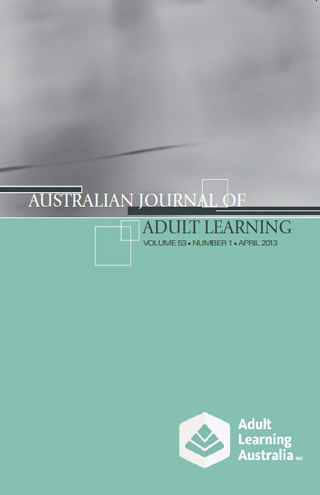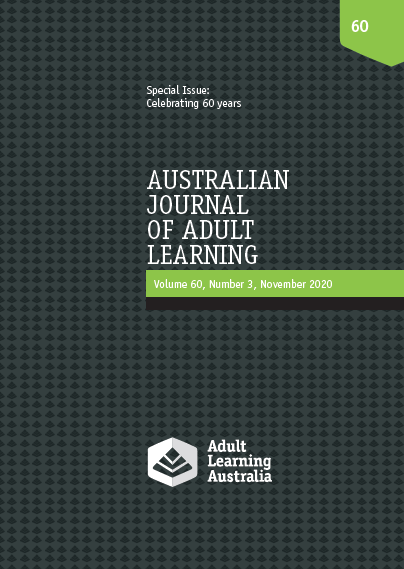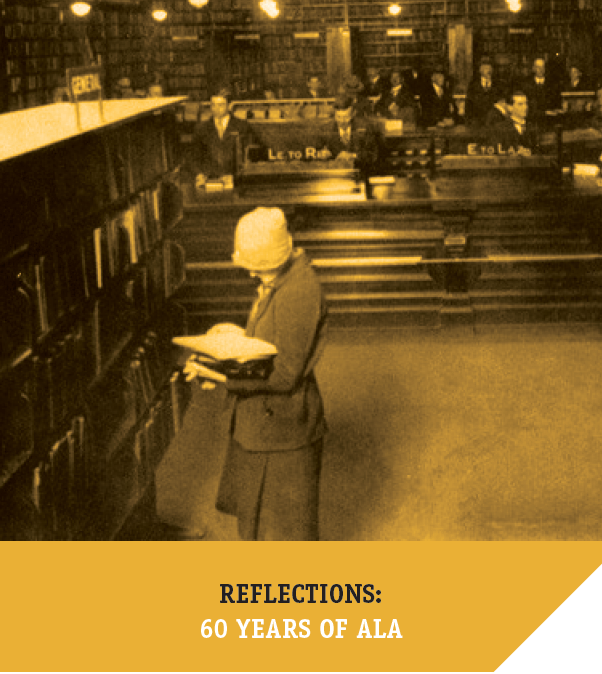Our history
Looking back – casting forward
2025 marks the 65th anniversary of Adult Learning Australia (ALA), the national peak body for the adult learning and community education sector. We look forward to providing new information and resources about our 65th soon.
This page provides an opportunity to look back at our 60th anniversary in 2020.
Time line
Adult Learners Week celebrates 25 years in Australia. NSW Government launches ACE Policy Statement. Tasmanian Government launches Adult Learning Strategy. Adult Learning Australia celebrates 60 years.
Victorian Government commits to supporting and strengthening the ACE sector through the Ministerial Statement ‘The Future of Adult Community Education in Victoria’ 2020–25.
Amendment to Education and Training Reform Act enables CAE to be governed by the Box Hill Institute Board. Final AJAL editorial by Professor Roger Harris after almost 23 years. Dr Tony Brown appointed new AJAL editor.
The Ministerial Declaration on Adult Community Education recognises the role of ACE in providing pathways to further education and training for ‘second chance’ learners.
Australian Journal of Adult and Community Education changes to Australian Journal of Adult Learning.
UNESCO Hamburg conference acknowledges the value of adult education. Beyond Cinderella: Towards a learning society seeks to bring together national ACE & VET policy
The National collaborative adult English language and literacy strategy provides a blueprint for governments to work together with industry and the community sector to develop and deliver an integrated national literacy and language strategy.
Come in Cinderella: The emergence of adult and community education Senate Report formally recognises ACE as the fourth sector of education and highlighted features that differentiated it from other sectors i.e. its lifelong learning philosophy and role in giving people a ‘second chance’ to overcome shortcomings in previous formal education and training. ACE formally recognised in Victoria via the Adult, Community and Further Education Act.
World Conference on ‘Education for all’ emphasises access to quality basic education for all. Training Reform Agenda aims to increase productivity through industry reform of the VET system. Mezirow publishes major works on critical, transformative and emancipatory learning. New journal title Australian Journal of Adult and Community Education edited by Professor Roger Harris.
Lifelong education revisited discussion paper argues that economic, technological and social changes mean it is essential to involve people of all ages in a continuing process of education & training. First Adult Learners Week celebrated is in the US. Competency-based training announced in Australia by Ministerial decree. AAAE & AAACE merge in September 1989.
A nation of learners report (Evans) stresses the importance of participation by a wide range of adults not in education, employment or training.
Johnson & Hinton: ‘Adult and continuing education in Australia’ (1985) highlights the importance of adult education and its contribution to the community, particularly women. AAAE establishes the Network of Women in Australian Adult and Community Education (becoming WAVE in 2001).
ABS national survey in 1984 identifies 13.6% of adults are involved in programs or courses of adult education.
Barrie Brennan, UNE became AJAE Editor.
The Board of Adult and Community Education in NSW sought to stimulate community agencies to boost their provision as TAFE NSW virtually withdrew from adult education courses.
1980s a ‘decade of women’ for AAAE. A community-based adult education movement emerged (particularly in Victoria), which had national implications.
Community education emerging.
The Association undertakes first ‘commissioned research’.
AAAE felt vulnerable with the rise of the Australian Association of Adult and Community Education (AAACE).
Australia urged to take up the recommendations from the UNESCO 1976 Nairobi report on a global approach for promoting and developing adult education. National conference on the provision of Adult Education in Australia.
The Australian Council for Adult Literacy began operating as an independent entity. Change in AAAE publications policy, with more emphasis on journal articles.
Kangan Report, TAFE in Australia published.
Joan Allsop anticipates that ‘Educational Resources Centres will be essential for all its citizens, not just as community centres … but as places of social and civic learning for all ages and at all times’.
Professor Zelman Cowen new Association President; Joan Allsop appointed Assistant Journal Editor with John Shaw.
John Shaw, University of NSW, becomes AJAE Editor, later, separately and together over 11 years, with Joan Allsop.
The AAAE was involved in organising the UNESCO Asian-South Pacific seminar that led ‘to the founding of the Asian-South Pacific Bureau of Adult Education’ (ASPBAE).
First editorial in the Australian Journal of Adult Education by Arnold Hely ‘Television and adult education in Australia’.
The AAAE published the first issue of the Australian Journal of Adult Education. The AAAE’s first conference: Adult education: The nation’s responsibility.
The Australian Association of Adult Education (AAAE) was formally established in 1960 in Hobart. Arnold Hely played a key role in establishing the AAAE as a national voice for adult education and was also a founder of Asian South Pacific Bureau Adult Education (ASPBAE).
Adult education continued in Australia at a state level through the WEA (Workers Education Association) in NSW & SA, Universities in Sydney, Perth, Armidale & Adelaide; State Boards in Queensland & Tasmania and CAE in Vic.
Victorian Council of Adult Education (now Centre for Adult Education) was established. Adult Education Board in Tasmania was created.
The first Board of Adult Education was established in QLD to organise, supervise and direct’ adult education in Queensland. The Act to set up the Council of Adult Education in Victoria was passed by the Cain Government.
The 1944 Duncan Report proposed a national system of adult education for post World War II Australia, however, implementation required a level of federal–state cooperation that Chifley thought too difficult to achieve.
The Workers’ Educational Associations arrived in Australia in 1913 (two exist today in Sydney and SA). WEA Sydney was established jointly by the trade union movement and the University of Sydney to enable working people to gain a liberal education.
The first Victorian Mechanics’ Institute was the Melbourne Mechanics’ Institute established in 1839 and renamed The Melbourne Athenaeum in 1873. Institutes proliferated to over 1200 in Victoria and 50 in Tasmania by 1890.
The Sydney Mechanics School of Arts (established 1833) offered everything – ‘from pneumatics, ancient oratory and ship-building to phrenology, how to choose a horse and the poetry of Byron. There were even classes in Simple Surgery. It was the centre of colonial Sydney’s intellectual, cultural, social and political life’ (smsa.org.au).
The Mechanics Institute movement started in Glasgow in the 1800s. ‘Mechanic’ referred to the working man, tradesman or artisan. The Institutes were welcoming spaces that offered adult education classes and books to borrow. The first Australian Mechanics School was established in Hobart in 1827.
Video
Celebrating 60 years of Adult Learning Australia
Niamh O’Reilly – Chief Executive Officer – AONTAS
Nani Zulminarni – President – ASPBAE
Adjunct Professor Barry Golding
Gallery
Who am I?
Our image gallery will grow over time.

